The first thing I notice in City of Dreams is how director Mohit Ramchandani brings viewers close to Jesús’s face. Too close at times. The camera feels intimate to the point of unsettling. If Jesús is feeling bad, so do I, if he’s triumphant, my heart leaps in my throat. That’s a brilliant choice from a cinematography standpoint, but it also reflects much about what director Ramchandani wants to say. This film is not a headline about child trafficking. This is Jesús’ story, raw and unfiltered. We get to experience everything he goes through, the good and the bad.
This feature is about children born into a world with everything against them. It is about crushed dreams and lack of privilege, but also about working against the circumstances that limit an individual’s growth. Jesús is a 15-year-old boy who dreams of becoming a soccer player and is lured by a human trafficker to be smuggled into the United States. Only then does his life become a nightmare that he has to fight against all the time for survival.
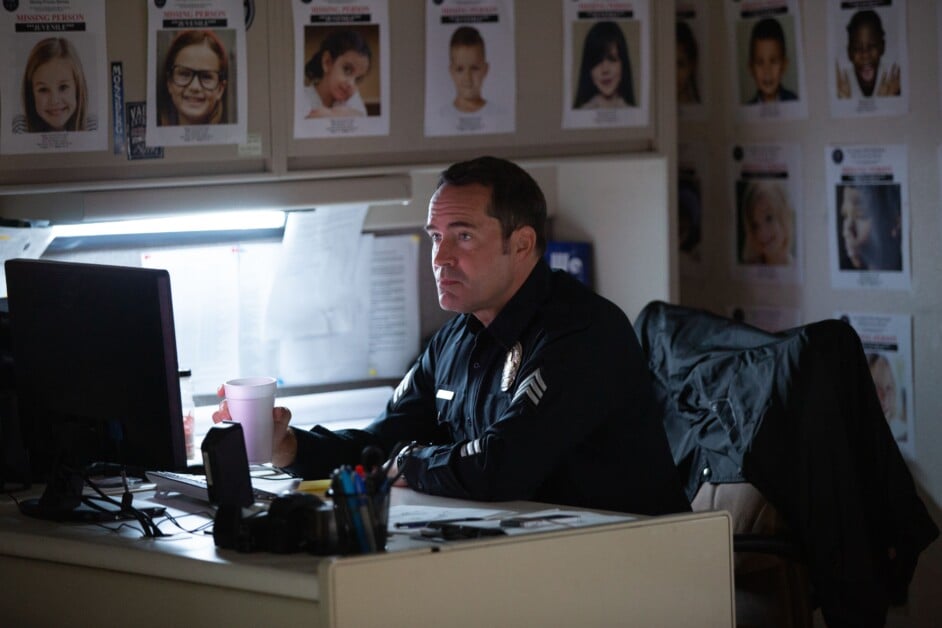
One of the things that attracted me to Jesús story is his silence, which unbeknownst to many, is a sign of emotional suppression. Kids who have gone through a lot of traumas in their lives at an early age, learn to suppress their emotions, opting for silence as the safest way out, the route to protection and safety. Jesús’ silence may not be self-imposed, but he doesn’t also have a choice in terms of self-expression. Choosing to portray a silent child in the face of oppression and injustice is a brilliant creative move by Ramchandani.
It also shows how children, whether speaking or mute, cannot understand or form a voice, unless they have an understanding, nurturing, and protective adult on their side, acting on their behalf. So for Jesús to react to all that is said and done to him, doesn’t seem foreign from children suffering from the trauma of abuse in all its forms. They respond to a hostile environment, rather than being taught to be active participants in it and express their fear and discomfort, through silence, submissiveness, and subdued behavior.
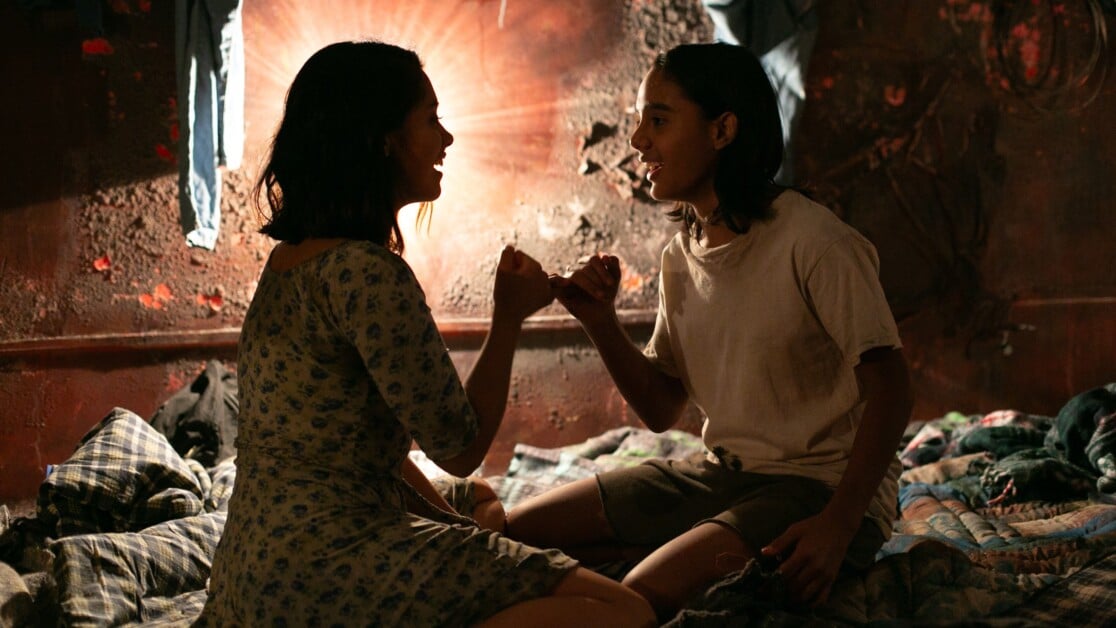
However, this doesn’t absolve the director from criticism. Depicting unnecessary child cruelty scenes on screen is a major low point in this film. It is offputting and traumatizing, to see a child beaten brutally and see the aftermath of torture on his young body is exploitative, and camera tricks could have been used to distract or even soothe a scene like this. As a critic, I don’t have a squeamish reaction to every act of violence used on screen. Violence in film is an art, but violence against children is irredeemable and lurid even on screen. Many ways other than showing could have been used to showcase the struggle of that child. Not to mention how many have criticized the lack of vision; is the director simply telling a story or as executive producer Tony Robbins said, “It’ll keep you on the edge of your seat, but hopefully, it’ll get you to add your voice to those that are fighting for the innocent children who really need our help.”
How does this film contribute to a call for action? If it had been merely made to tell a story, it would’ve made sense, even with all the unnecessary brutality, unfortunately not softened through the use of the dream sequences. However, it lacks a clear, solid direction regarding which cinematic style it belongs to; the scenes in the sweatshop clash entirely with the Lifetime movie-esque portrayal of LAPD officers searching for the missing kids. It doesn’t come as a relief but a farce, mismatched in both parts of the story.
This doesn’t deny how Ari Lopez is brilliant as Jesús. He brings so much to the table with his wide, curious, and intelligent eyes. Diego Calva also delivers a wonderful performance in a smaller production than what audiences are used to seeing him in. Ramchandani masterfully directs his actors, and this is where his strongest points lie. At the end of the day, City of Dreams is a sepia-filter nightmare. Though it leans toward a pit of hopeless despair, the story still serves as an eye-opener to the resilience of children’s spirits and the cruelty experienced by those struggling on the margins of a money-driven world.
City of Dreams is currently available on Digital platforms courtesy of Roadside Attractions.
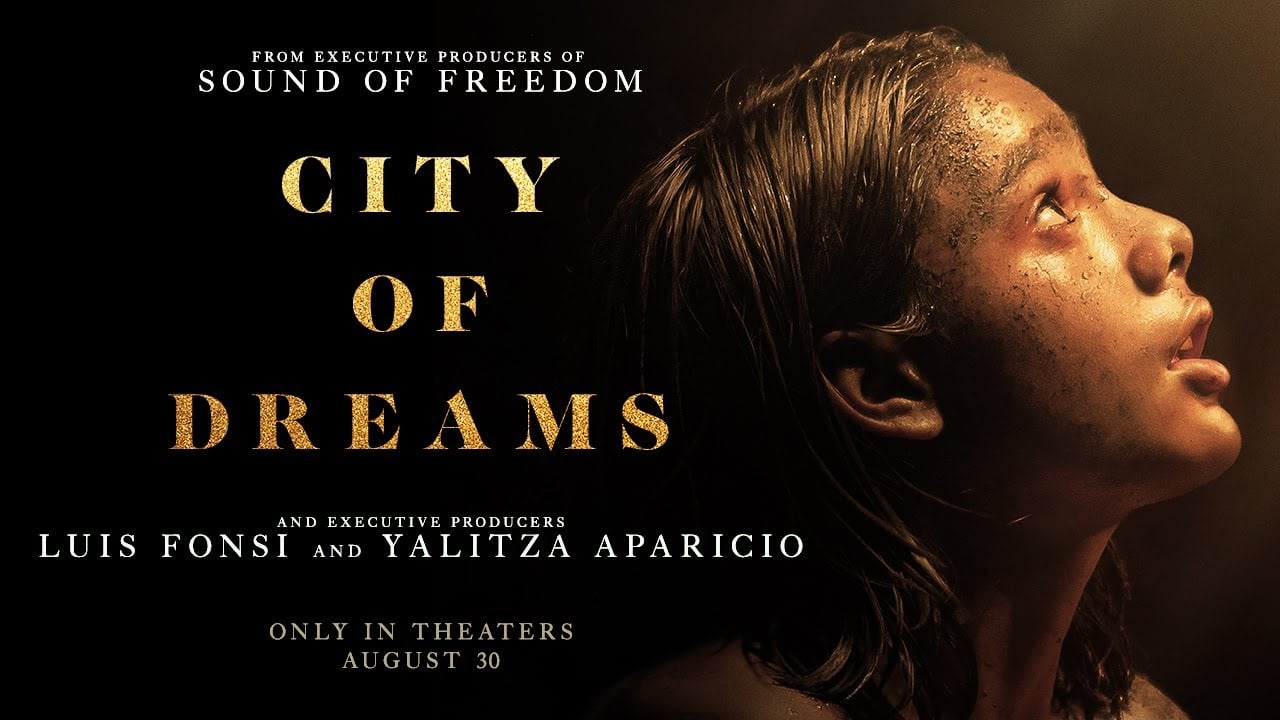
At the end of the day, City of Dreams is a sepia-filter nightmare. Though it leans toward a pit of hopeless despair, the story still serves as an eye-opener to the resilience of children's spirits and the cruelty experienced by those struggling on the margins of a money-driven world.
-
GVN Rating 5
-
User Ratings (0 Votes)
0
Jaylan Salah Salman is an Egyptian poet, translator, and film critic for InSession Film, Geek Vibes Nation, and Moviejawn. She has published two poetry collections and translated fourteen books for International Languages House publishing company. She began her first web series on YouTube, “The JayDays,” where she comments on films and other daily life antics. On her free days, she searches for recipes to cook while reviewing movies.


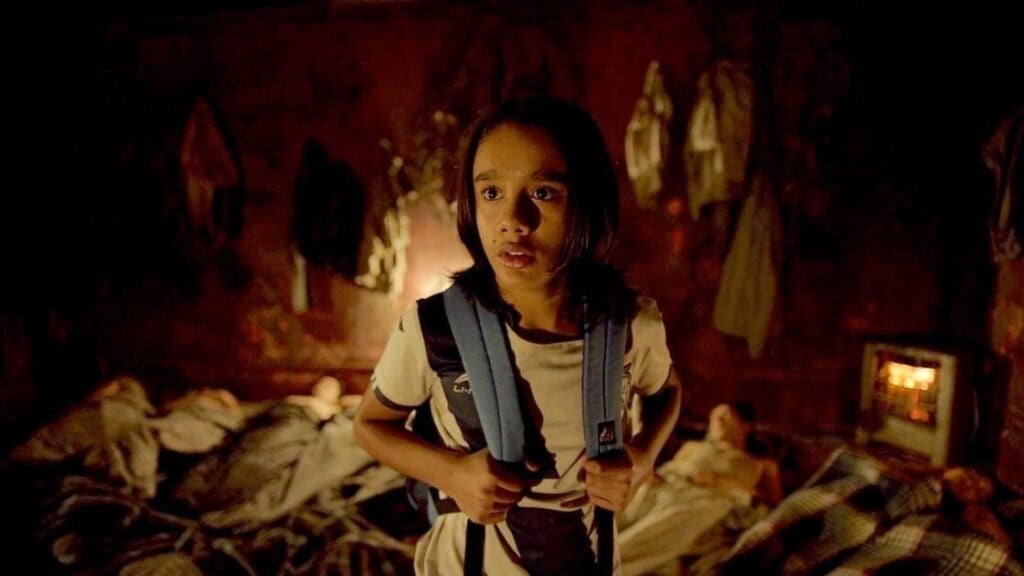
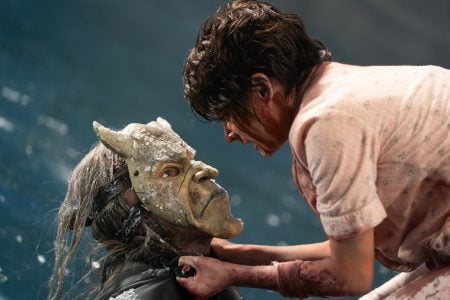


![‘Frankenstein’ Review – Guillermo del Toro’s Definitive Look At The Nature And Nurture Of Monstrosity [TIFF 2025] ‘Frankenstein’ Review – Guillermo del Toro’s Definitive Look At The Nature And Nurture Of Monstrosity [TIFF 2025]](https://cdn.geekvibesnation.com/wp-media-folder-geek-vibes-nation/wp-content/uploads/2025/10/Frankenstein-175_PF_20240430_20377_R-300x200.jpg)